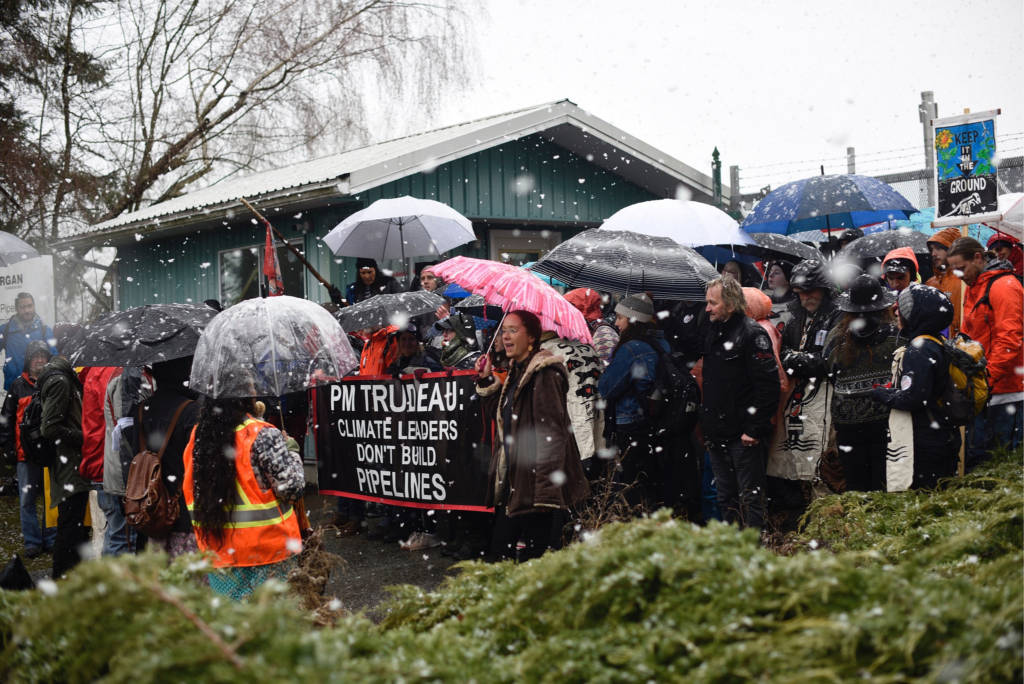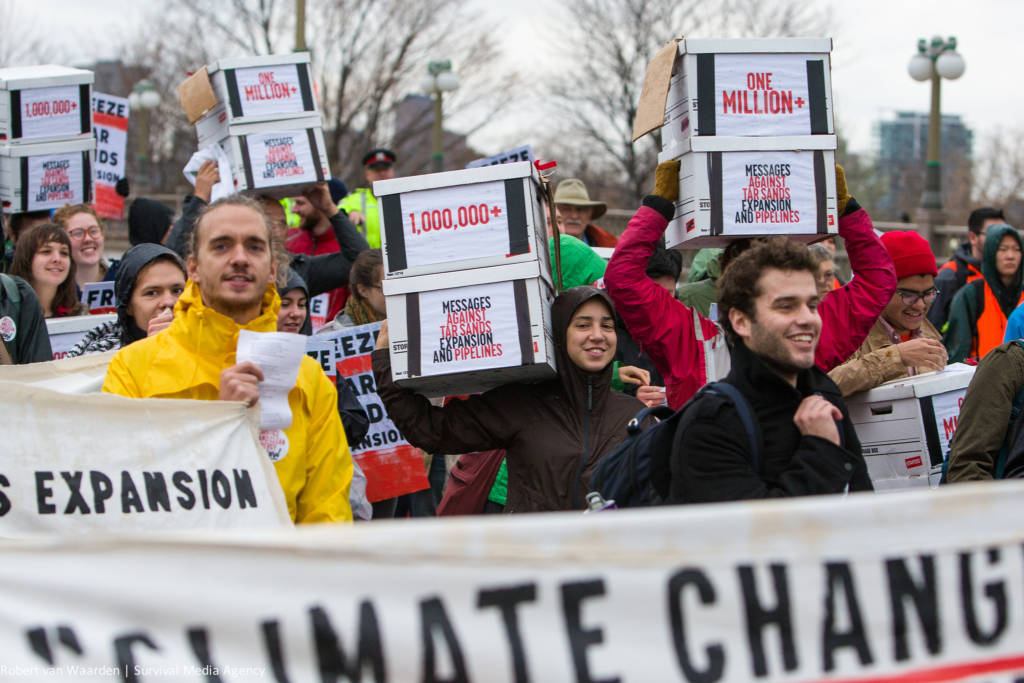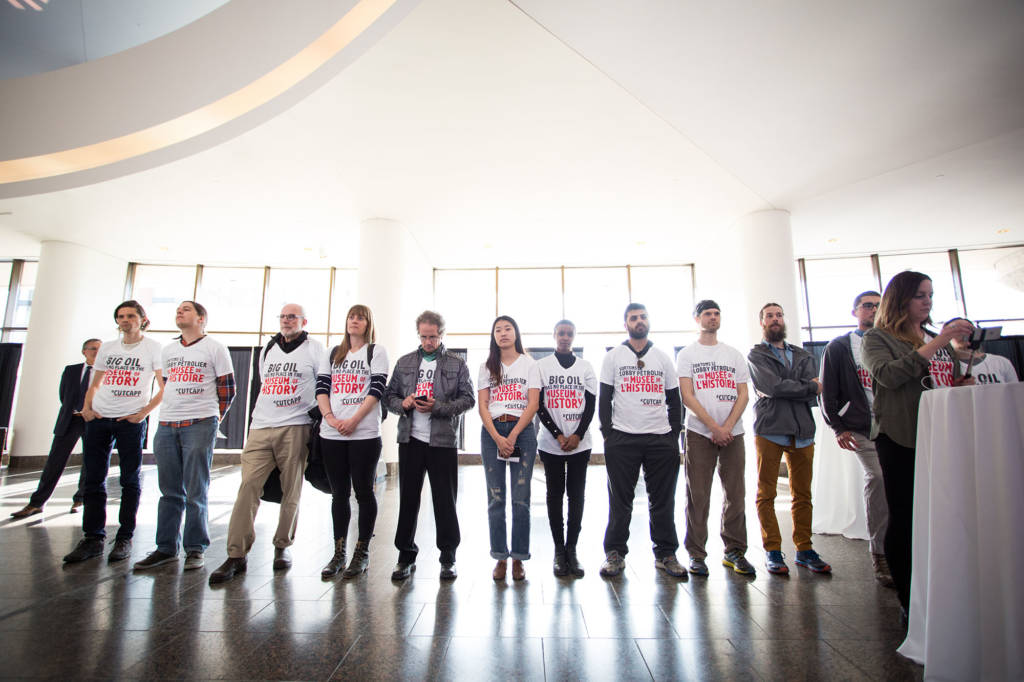On October 15th, Parliament held an emergency climate debate, now we need action.
The world’s most authoritative voice on climate science, the Intergovernmental Panel on Climate Change (IPCC), released a report on October 8th on what it means to limit global climate change to 1.5°C – the target Canada not only endorsed, but fought for at the 2015 Paris climate summit. The bottomline: any hope for a safe climate hinges on ceasing fossil fuel expansion, immediately. Learn more…
After this report was released, thousands of people called on all federal party leaders to hold an emergency debate in the House of Commons on Canada’s plan to limit climate change to 1.5°C. It worked! But one thing was abundantly clear by the time the 6 hour debate ended: talking about climate change isn’t enough, we need action.
On October 24th, 1000+ people delivered the IPCC’s 1.5°C report to over 250 MP offices across the country.
Together, they called on Members of Parliament to pledge that, before the next election, they will propose, champion and support legislation to update Canada’s climate policies and bring them in line with the urgency called for in the IPCC report.
One year out from the federal election, let’s demonstrate that we’re looking for leaders who are not only listening to the science in the IPCC report, but stepping up to take action. That means strengthening our international climate commitments, stopping fossil fuel expansion, and building a 100% renewable energy economy that respects Indigenous rights and works for everyone.
Ready to take action?
Step 1: Find your MP’s office
Step 2: Check out our participant’s guide and find a time in your day to make your delivery
Guidelines for participants:
Once you’ve signed up to deliver a report on the map above, here’s how to prepare for your delivery:
- Download the IPCC report summary for policy makers and adapt the letter to MPs. Print out both documents.
- Do a quick google search to confirm the office hours for your MP’s office. Choose a time to go there on October 24th by yourself or with some friends.
- Take a picture of yourself in front of your MP’s office to post to social media with the hashtag #1point5CA and to send to us by taking these steps.
- Deliver the report and letter to your MP!
We aren’t asking for big events to be organized, but for people to simply get a few people together or go by themselves with a printed version of the report (or the executive summary) and a letter asking for commitments from their MP.
With a planet barely 0.9°C warmer than pre-industrial times, we are witnessing a chain of catastrophic climate-related extremes all over the globe. If we want to avoid even more dramatic impacts, we have to stay under a 1.5°C increase in global mean temperatures — and our probability of success slims with every passing day.
What does the report say?
The bad news first.
With a planet barely 0.9°C warmer than pre-industrial times, we are witnessing a chain of catastrophic climate-related extremes all over the globe. If we want to avoid even more dramatic impacts, we have to stay under a 1.5°C increase in global mean temperatures — and our probability of success slims with every passing day.
The good news? We can do it.
It’s going to require systemic change at a pace never seen before, but it is technically feasible, economically sound and it’s not only the right thing to do, it’s the only choice we have.
To save our planet’s ability to sustain life as we know it, we need to drastically reduce the use of fossil fuels right now and rapidly move to energy systems completely powered by renewable energy. It will be a true energy revolution, but this time around we need to make sure that it is a just and equitable transition to a 100% renewable energy economy that works for everyone. Canada’s fossil fuel industry is big enough — it’s time to put an end to tar sands expansion immediately.
What’s does this mean for Canada?
In Canada, the translation is simple: any expansion of the fossil fuel industry — whether it’s via increasing tar sands extraction in Alberta, fracking LNG in BC, or offshore oil drilling in Nova Scotia — is fundamentally in conflict with securing a safe climate. Equally pressing, as the country’s highest courts have confirmed, Canada’s pursuit of mass fossil fuel expansion is undermining the Trudeau government’s commitments to Indigenous rights and reconciliation.
What’s At Stake
The People’s Dossier on 1.5°C
Indigenous peoples and vulnerable communities in the Global South will disproportionately bear the brunt of the climate crisis. Many of these communities are also part of a big, bold and creative climate movement that is our only hope for solving the climate crisis. Grounded in justice and informed by science, people power must step up to this moment and move the limits of what is possible.
Ordinary people from all walks of life are already leading the climate movement across the world. The People’s Dossier on 1.5°C contains stories from all over the world of of climate change impacts and communities fighting against fossil fuel projects and for a fast and just transition to 100% renewable energy.
Past Campaigns to keep fossil fuels in the ground in Canada
People vs Kinder Morgan
Since March 10th 2018, the movement to stop the Kinder Morgan tar sands pipeline has taken unprecedented action all across Canada. In solidarity with Coast Salish spiritual leaders who are on the forefront of resistance on Burnaby Mountain, people across Canada have risen up to show the Trudeau government the political cost of building the Kinder Morgan pipeline. More →
Stop(ped) Energy East
In 2017, the movement for climate justice and Indigenous rights in Canada stopped the largest tar sands pipeline ever proposed. Check out our timeline to find out more about how we got here. More →
Big Oil has no place in Canada’s museums.
Thanks to people power, Canada’s most iconic cultural institution — the Museum of History — cut its ties to the dirtiest Big Oil lobby group in the country: the Canadian Association of Petroleum Producers. More →
Follow
350 Canada on Facebook 350 Canada on Twitter 350.org on Instagram
Resources:
Fossil Fuel Divestment: Are you interested in resources for a fossil fuel divestment campaign? You can find a suite of global divestment resources here, and if you’re part of a campus divestment team, our friends at the Canadian Federation of Students can offer additional campaign support. Contact the CFS at campaigns@cfs-fcee.ca.
Climate Science Basics: Needs to make the case about action on climate change to family or friends? Here are some basic climate facts.
350 Trainings Resources: Share knowledge, build resources, and run effective workshops to build capacity in the climate justice movement.
Raise a Paddle Film: Watch this film learn more about how the fight against tar sands connects Indigenous communities across the world.
More coming soon



